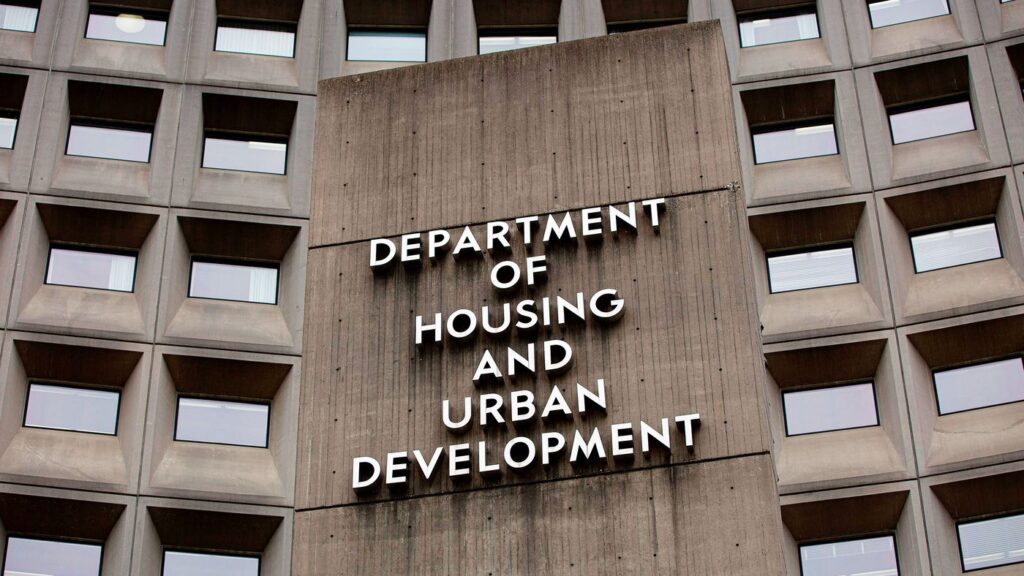The U.S. Department of Housing and Urban Development (HUD) has awarded $83 million to three organizations for local affordable housing and community development activities that benefit people with low income. The funding, awarded through HUD’s Capacity Building for Affordable Housing and Community Development program, also known as Section 4, will be used to create jobs and affordable housing units.
“At HUD developing all communities, including rural and tribal, is an important part of our mission and these capacity building grants are further evidence of our commitment,” said Acting HUD Secretary Adrianne Todman. “The funding we are announcing today helps rural communities build and invest in better neighborhoods for their residents so that they have access to safe, affordable homes.”
The three recipients of the grants, Enterprise Community Partners, Local Initiatives Support Corporation (LISC), and Habitat for Humanity International (HFHI), will receive the funds and will use them to serve Native Hawaiian, American Indian, and Alaska Native communities and populations in areas including, but not limited to, rural areas. In addition, these grantees are all working to support the Rural Partners Network, the Administration’s all-of-government effort to support rural communities.
Grant recipients
Enterprise Community Partners will receive a combined Fiscal Year (FY) 2022 and 2023 total grant award of $32 million with three to one match commitment of $97 million. Enterprise will use the funds to provide training, education, support, and advice to enhance the technical and administrative capabilities of Community Development Corporations (CDCs) and Community Housing Development Organizations (CHDOs). Enterprise expects to target 500 grants while serving at least 650 CDC’s, CHDO’s and Tribally Designated Housing Entities (TDHE’s). Deliverables include 8,000 housing units created or preserved while 13,100 jobs are created.
LISC will receive a combined Fiscal Year (FY) 2022 and 2023 total grant of $28 million with a three to one match commitment of $85 million. LISC will use Section 4 funds to provide grants, technical assistance, training, and resource integration to Community Development Corporations (CDCs). These activities strengthen the CDC operations while focusing on affordable housing access, advancing fair housing practices, while focusing on historically marginalized and disinvested communities. LISC will work with 480 CDCs in 50 states, while also hosting 350 peer-to-peer learning events, which would lead to increased capacity to serve 30,0000 low-income individuals; introduce 3,000 units of affordable housing into the development pipeline and preserve/rehabilitate 5,000 more. Additionally, implementing the programming will assist 1,500 businesses while creating approximately 800 jobs and retaining 700 jobs.
HFHI will receive a Section 4 grant award in the amount of $22 million with a three to one match commitment $67 million. HFHI will use Section 4 funds to provide Community Development Corporations (CDCs) with resources for more affordable housing opportunities in their communities. HFHI will design and implement more equitable policies and practices at the CDC level to increase the accessibility of affordable housing, wealth creation, develop nationwide training tools to support courageous community conversations, and assist CDCs with Diversity Equity and Inclusion (DEI) consultants. HFHI will advance homeownership opportunities for low income and underserved populations throughout the United States through new construction, acquisition, rehabilitation, and critical home repairs to 1,200-plus units during the grant term. In addition, they will train more than 4,600 people, while covering various topics for the proposed initiatives. Creating approximately 90 jobs at CDS and awarding 50 grants to advance racial equity.
Latest in HUD actions
HUD also recently announced approximately $70 million in awards around the country to help transform communities by repairing older homes, conserving affordable housing, and enhancing the health of children and families. Grants are also being offered for research into housing-related health hazards in order to improve residents’ health and safety by identifying better ways to manage their homes. This round of funding will assist vulnerable residents by addressing housing-related health and safety problems, implementing long-term local programs, and promoting critical research to detect and minimize safety hazards.
The grants awarded include funds from:
- Healthy Homes Production Grant Program
- Healthy Homes and Weatherization Cooperation Demonstration Grant Program
- Older Adult Home Modification Grant Program
- Lead Technical Studies Grant Program, the Healthy Homes Technical Studies Grant Program
- Lead Hazard Reduction Capacity Building Grant Program
“These resources support the creation and preservation of housing, and enhances community amenities, like grocery stores and parks,” Todman added. “Paired with meaningful community engagement and thoughtful planning, this funding opportunity will help leaders and neighbors improve quality of life and attract the partners and resources that communities deserve.”





